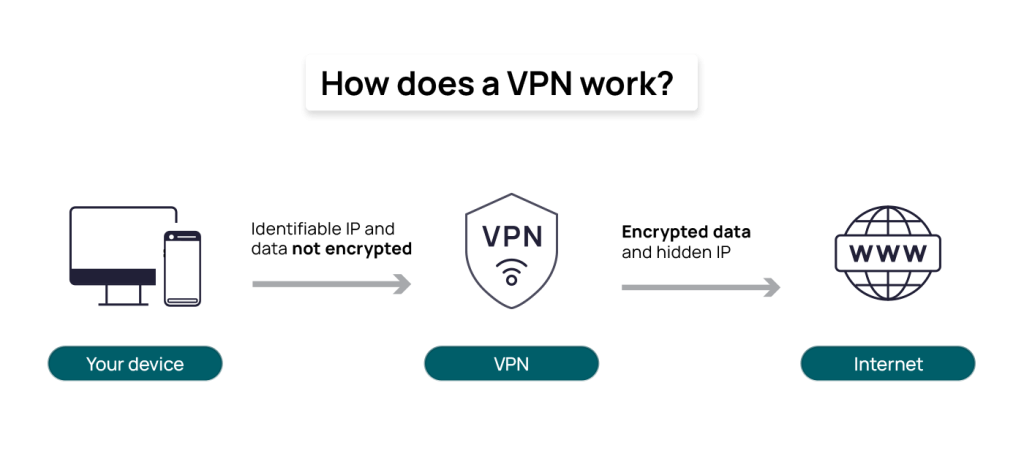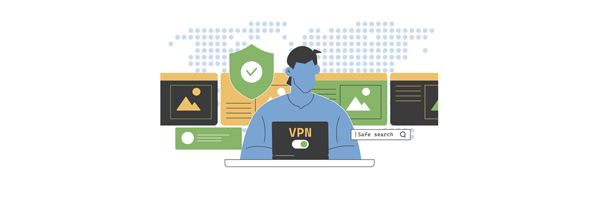In today’s digital world, online privacy is under constant threat. A VPN (Virtual Private Network) is one of the best tools you can use to protect your personal data, browse anonymously, and access global content. But how exactly does it work — and why is it essential in benefits in 2025?

🔐 What Does a VPN Do?
A how VPN works creates a secure, encrypted tunnel between your device and the internet. When you connect to a secure internet connection, your IP address is hidden, and all your traffic is routed through a remote server, protecting your identity and activities from hackers, ISPs, and surveillance.
- 🔒 Encrypt your data
- 🌍 Access region-locked content
- 🕵️ Stay anonymous online
- 📶 Protect yourself on public Wi-Fi

Who Should Use a Virtual Private Networkin 2025?
Travelers using unsecured public Wi-Fi
Citizens in countries with internet censorship
Remote employees working from home
Torrent users who need privacy
Privacy-conscious internet users
Learn More
If you want to go deeper, here’s a detailed explanation of VPNs on Wikipedia

What Makes a Good VPN vs a Bad VPN?
In today’s digital world, using a VPN is no longer just a luxury — it’s essential. But not all VPNs are created equal. Some protect your privacy and security, while others can actually do more harm than good. So how do you tell the difference between a good VPN and a bad one?

🔐 Security and Encryption
A good VPN uses strong encryption protocols like OpenVPN or WireGuard to protect your data. It also includes features like a kill switch, DNS leak protection, and multi-hop routing. A bad VPN might use outdated encryption — or none at all — putting your personal information at risk.
👀 Logging Policy
One of the most important factors is the no-logs policy. A trustworthy VPN will never track, log, or store your browsing activity. Bad VPNs, especially free ones, often collect your data and sell it to third parties.
🚀 Speed and Server Network
Good VPNs offer fast speeds and a wide selection of global servers. They invest in infrastructure and performance. Bad VPNs are slow, laggy, and often have limited server choices — making streaming or torrenting frustrating.
💸 Free vs Paid VPNs
Free VPNs may sound appealing, but they usually come with limits on data, speed, and security. Paid VPNs are more reliable, ad-free, and offer premium support. Some bad VPNs even contain malware or intrusive ads.
Final Thoughts
In 2025, using a VPN is no longer optional — it’s essential. Whether you’re protecting sensitive information, avoiding surveillance, or simply watching your favorite shows abroad, a encrypted browsing gives you control over your digital life.
🔍 Coming soon: In-depth reviews of NordVPN, Surfshark, ExpressVPN, and other top VPNs.